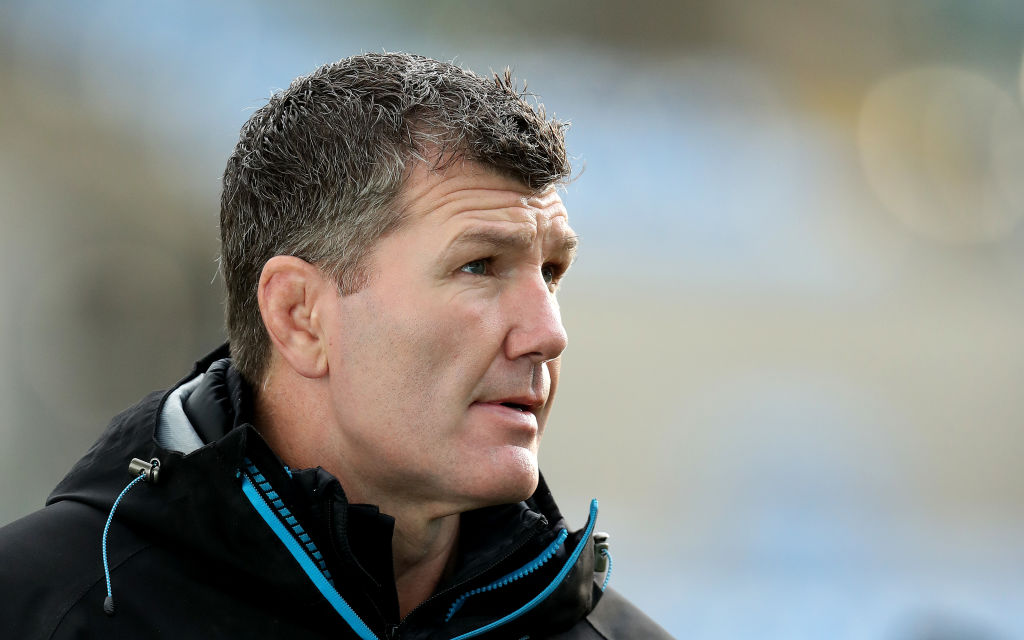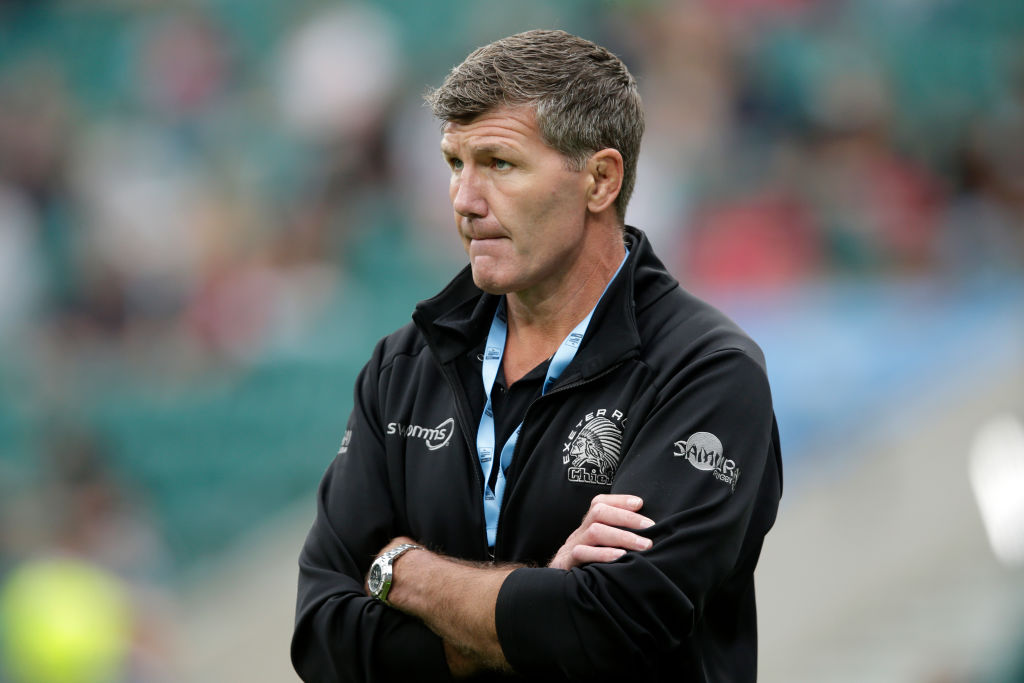Rob Baxter feels Six Nations should be played in one country

COVENTRY, ENGLAND - JANUARY 02: Rob Baxter, the Exeter Chiefs director of rugby looks on during the Gallagher Premiership Rugby match between Wasps and Exeter Chiefs at the Ricoh Arena on January 02, 2021 in Coventry, England. (Photo by David Rogers/Getty Images)
Playing the Guinness Six Nations Championship in one country has “got to be better than cancelling it”, says Rob Baxter.
In the midst of surging Covid-19 infection rates, likelihood of behind-closed-doors fixtures and quarantine requirements, the Six Nations is shrouded in undcertainty.
The tournament is due to kick off in Dublin and Edinburgh on February 5.
Rob Baxter said: “We can’t all sit here and pretend the world is in an ideal place at the moment”.

Under current Welsh Government restrictions imposed due to the coronavirus pandemic and its omicron variant, Wales would have to play scheduled home games against Scotland, France and Italy behind closed doors.
The Scots are in a similar position for games at Murrayfield, while it has been reported that Wales could consider moving their Principality Stadium fixtures against Scotland, France and Italy to England.
Amidst political infighting, the Welsh and Scottish governments have imposed restrictions with Westminster seemingly not footing the bill.
Whereas, full capacity crowds are currently allowed in England, with the government seeming to not budge on imposing coronavirus restrictions. Only those who are fully vaccinated or have provided a negative lateral flow test are able to enter sporting stadia
Six Nations
The competition takes place across five weekends between early February and mid-March. The idea of playing it in one country with permitted crowds has been mooted.
Financial implications of behind-closed-doors home games for the Welsh Rugby Union would be significant.
Full crowds were, however, allowed at the Principality Stadium for Wales’ four Autumn Nations Series Tests this term, before fresh restrictions took effect from Boxing Day.
“The whole beauty of the Six Nations has been that change of environment, that change of weather conditions, going to play in Scotland, Wales, Ireland – those are the great challenges,” Exeter rugby director Baxter said.
“That’s what makes the Six Nations such a great competition to win.
“You’ve seen French teams in that one week they can beat anyone in the world in Paris, and then the next week it doesn’t go quite so well in Cardiff. That’s the beauty of the tournament, that’s what from a rugby perspective I am sure we would all want to see happen.
“That said, we can’t all sit here and pretend the world is in an ideal place at the moment.
“For the national bodies, their responsibility goes beyond the professional sport, it goes right down to grassroots rugby, so if playing the tournament provides a level of income that cancelling it or no crowds doesn’t create, then we’ve got to look at the next best scenario.
“If the next best scenario is playing it in one country, where you can have sellout crowds, you can raise some revenue and you can keep that income stream going for all the bodies, then it’s got to be better than cancelling it.
“I think with every sporting body, it’s revenue that is the biggest thing that has been damaged, so anything that can keep revenue online has got to be preferable to just binning things for a season.
“We’ve all had to try and find a way to keep going, to try and keep revenue coming in. It’s the same with any business, you’ve got to explore those options.”